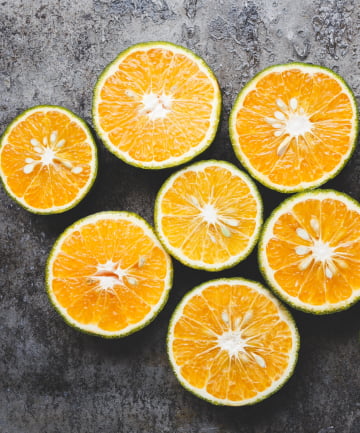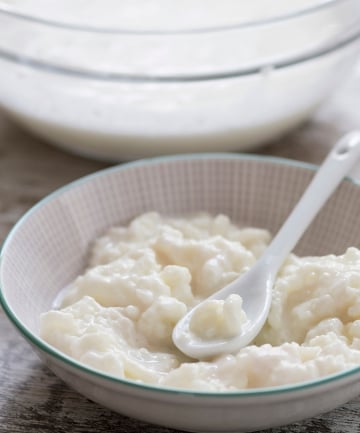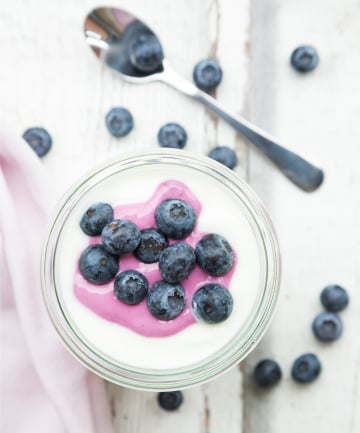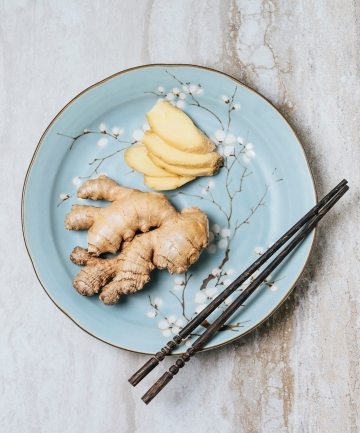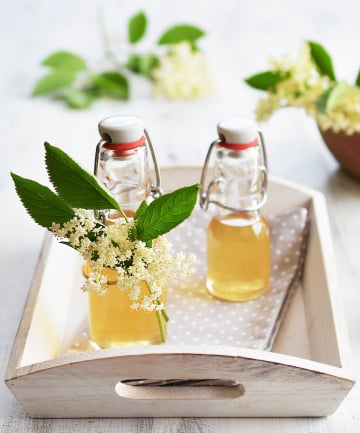It's true that citric fruits such as oranges are excellent immune system fighters, thanks to the fact that they're rich in vitamin C. In fact, one orange alone — which contains 70 mg of vitamin C — is almost enough to satisfy the daily recommended amount for women (75 mg/day) and men (90 mg/day).
"While vitamin C won't prevent you from getting sick, studies have shown that getting enough vitamin C may shorten the length of a cold by a day. Incorporate a piece of citrus fruit into meals daily," says Frances Largeman-Roth, RDN, author of Eating in Color. "Easy to peel mandarin oranges make an easy snack for kids and grown ups."
Image via Thu Thai Thanh/EyeEm/Getty
"While vitamin C won't prevent you from getting sick, studies have shown that getting enough vitamin C may shorten the length of a cold by a day. Incorporate a piece of citrus fruit into meals daily," says Frances Largeman-Roth, RDN, author of Eating in Color. "Easy to peel mandarin oranges make an easy snack for kids and grown ups."
Image via Thu Thai Thanh/EyeEm/Getty
This fermented dairy product is a combination of milk and what's called starter "grains" — a combination of bacteria and yeasts that interact with the milk, as Dr. Axe explains. It's popular in many countries, mainly because it can be made with any type of milk (from cows, sheep and goats, to rice and coconut). "Kefir contains 10 to 34 types of probiotics, which are essential for gut health and immune function," explains Dr. Axe. While you can drink kefir on its own, he recommends adding it to smoothies or using it as a base in soups and spreads.
Image via ondacaracola photography/Getty
Image via ondacaracola photography/Getty
Similarly to kefir, yogurt is a probiotic-rich food, which means it's beneficial for gut health and plays a key role in aiding your immune system. "If your gut is out of whack, it's leaving your body open to cold and flu viruses," says Largeman-Roth. For this reason, she suggests piling your plate with probiotic-rich foods, like yogurt. Even better, add in some antioxidant-rich blueberries, a low-glycemic food that contains less sugar than most berries. Plus, one cup serving provides 200 percent of the daily recommended intake of manganese, a mineral that helps regulate blood sugar, heal the skin and maintain bone health.
Image via Westend61/Getty
Image via Westend61/Getty
There's a reason this flowering plant has been widely used for medicinal and culinary purposes by a myriad of cultures throughout history — it's absolutely loaded with immune-boosting benefits. "Ginger has warming effects, which is believed to help break down the accumulation of toxins in the body," says Dr. Axe. "Plus, it helps to cleanse our lymphatic system, reduce inflammation and fight infections." He suggests adding ginger to your smoothie, drinking ginger tea daily or using an organic ginger essential oil and applying 2-3 drops topically to your stomach.
Image via Claudia Totir/Getty
Image via Claudia Totir/Getty
Another popular flowering plant that's gaining more and more popularity in the U.S. food market recent years is elderberry, thanks to its ability to fight symptoms of the common cold and flu, allergies and inflammation. It's usually consumed as an extract, syrup or tea. "Research shows that consuming 15 milliliters of elderberry extract within the first 48 hours of onset of flu symptoms may lead to relief about 4 days earlier compared to placebo," says Dr. Axe.
Image via Streim, Mariola/Getty
Image via Streim, Mariola/Getty


